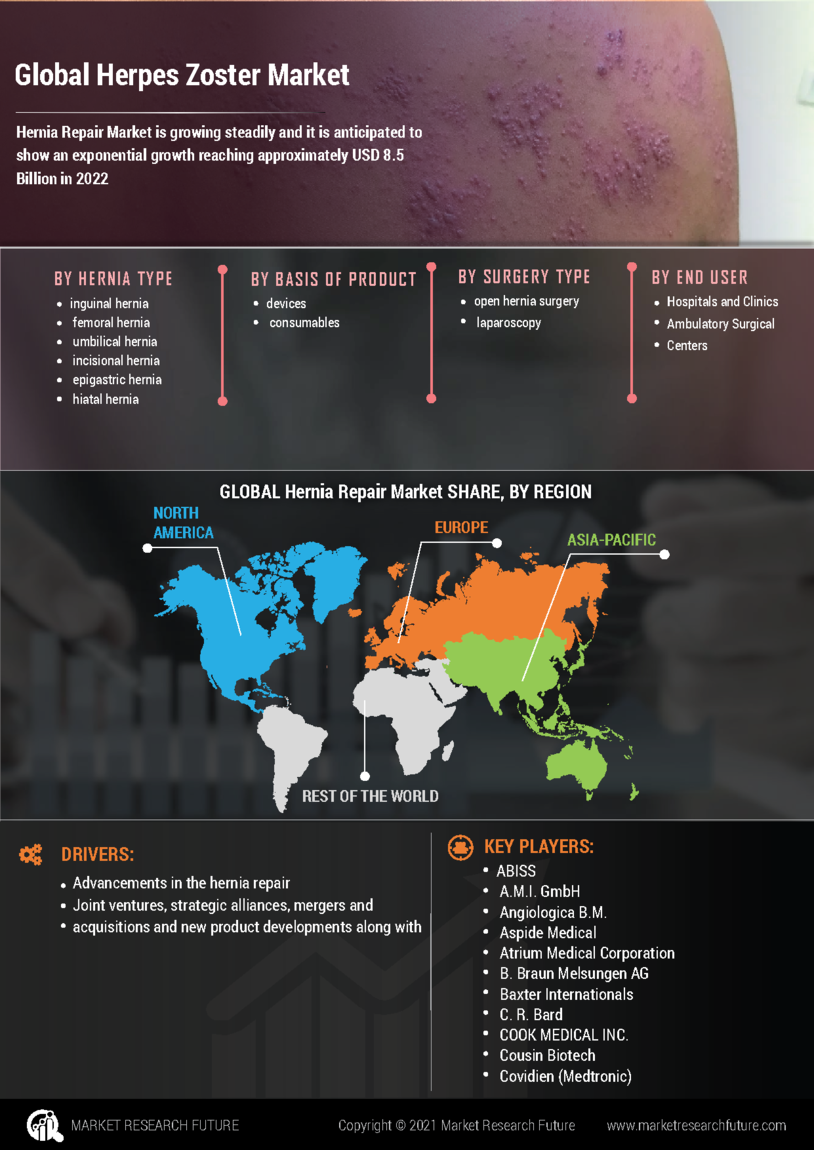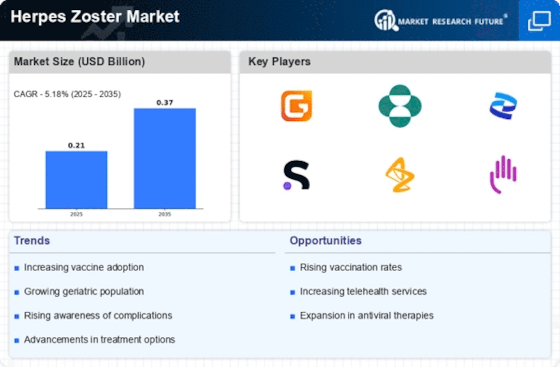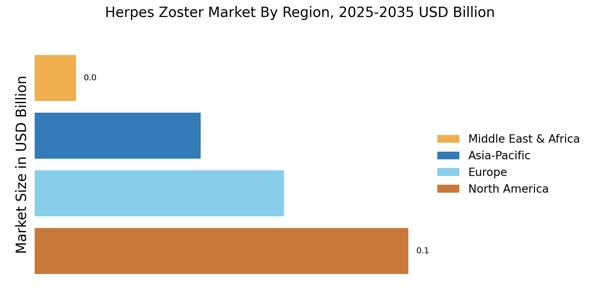Rising Healthcare Expenditure
The Herpes Zoster Market is also influenced by rising healthcare expenditure across various regions. As governments and private sectors allocate more resources to healthcare, there is a corresponding increase in funding for preventive measures, including vaccination programs for herpes zoster. According to recent data, healthcare spending is projected to grow at a compound annual growth rate of 5.4% over the next several years. This financial commitment enables better access to vaccines and treatments, thereby fostering a more proactive approach to managing herpes zoster. Consequently, the Herpes Zoster Market stands to benefit from enhanced healthcare infrastructure and increased availability of therapeutic options.
Advancements in Vaccine Technology
Recent advancements in vaccine technology are poised to transform the Herpes Zoster Market. The introduction of recombinant zoster vaccine (RZV) has shown promising efficacy in preventing shingles and its complications. Clinical trials have demonstrated that RZV can reduce the incidence of herpes zoster by over 90% in older adults, which is a substantial improvement over previous vaccines. This technological progress not only enhances patient outcomes but also encourages healthcare providers to recommend vaccination more vigorously. As awareness of the benefits of vaccination grows, the Herpes Zoster Market is likely to witness increased uptake of these innovative vaccines, ultimately leading to a reduction in the overall incidence of herpes zoster.
Increasing Incidence of Herpes Zoster
The Herpes Zoster Market is experiencing growth due to the rising incidence of herpes zoster, commonly known as shingles. This condition is primarily caused by the reactivation of the varicella-zoster virus, which remains dormant in the body after a chickenpox infection. Epidemiological studies indicate that approximately one in three individuals will develop shingles in their lifetime, with the incidence increasing significantly among older adults. As the population ages, the number of cases is expected to rise, thereby driving demand for effective treatments and vaccines. The increasing burden of herpes zoster on healthcare systems further emphasizes the need for innovative solutions within the Herpes Zoster Market, as healthcare providers seek to manage and mitigate the impact of this condition.
Increased Focus on Preventive Healthcare
The Herpes Zoster Market is benefiting from an increased focus on preventive healthcare measures. As healthcare systems worldwide shift towards preventive strategies, there is a growing recognition of the importance of vaccination in reducing the incidence of herpes zoster. This trend is supported by public health initiatives aimed at educating populations about the benefits of vaccination and early intervention. The emphasis on preventive care is likely to lead to higher vaccination rates among at-risk populations, particularly older adults. As a result, the Herpes Zoster Market is expected to expand, driven by the proactive measures taken to prevent shingles and its associated complications.
Growing Awareness of Shingles Complications
The Herpes Zoster Market is witnessing a surge in awareness regarding the complications associated with shingles, such as postherpetic neuralgia (PHN). PHN can lead to chronic pain and significantly impact the quality of life for affected individuals. As healthcare professionals and patients become more informed about these potential complications, there is a heightened emphasis on prevention through vaccination. Educational campaigns and outreach programs are increasingly focusing on the importance of early intervention and vaccination to mitigate the risk of developing PHN. This growing awareness is likely to drive demand for vaccines and treatments within the Herpes Zoster Market, as individuals seek to protect themselves from the debilitating effects of shingles.


















